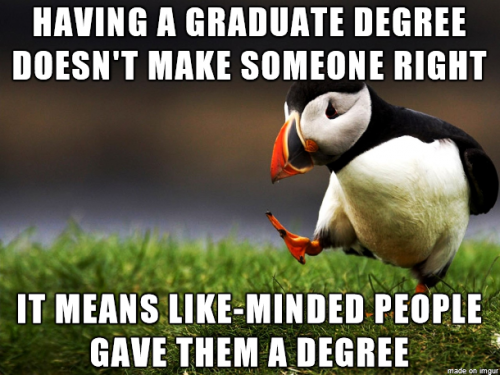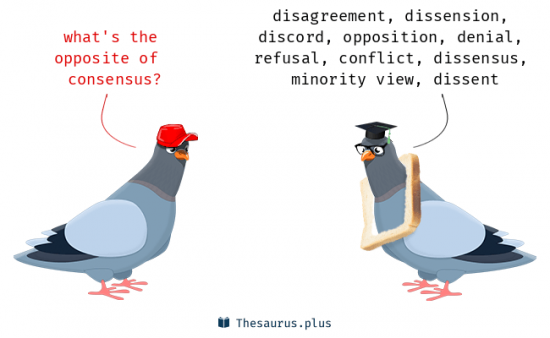Critics claim that non-experts could not possibly be right and that it is reckless, or even a sign of Dunning-Krueger, to listen to someone with an analysis that is not shared by a ‘consensus of experts’.
And yet the experts have been wrong more often than not on their most apocalyptic prophecies, so a person could merely take the opposite of whatever the government or media-funded experts predict and maintain a fantastic track record.
Why are they wrong so often? Because those who control the narrative that governs your external life offer perverse incentives. The more extraordinary your claim, the more likely you are to find fame, wealth and power, regardless of whether the claim was accurate. This is because those who control the narrative remain in power so long as they retain enough trust and influence among the mob to keep you obsessed with fear of the future instead of living in the present.
Despite this undeniable history, many Americans labor under the weight of the ‘appeal to authority’ fallacy (often combined with the ‘bandwagon’ fallacy). Even now as the pandemic slows under the weight of increasing numbers showing the fatality rate to be as low as 1% of what had been predicted, the most extreme and unlikeliest of scenarios are relied upon by the doomsday cultists to threaten dissenters with such hurtful accusations as ‘heartless’.
You know the argument is won when the sum total of evidence against your analysis is that you are ‘heartless’.
I’ve been building successful predictive behavioral models for 20 years. I started with Excel spreadsheets and manual entry of data, moved to MySQL and then custom machine analysis and artificial intelligence operations. I know it’s possible to beat the experts using intelligence guided by experience and informed with a healthy does of skepticism about secular ‘experts’ because I have done it so often, in the markets, in elections and in sports.
This is meaningless to anyone who values peer-reviewed studies over accuracy.
Still not convinced that the ‘experts’ are usually wrong and influenced less by data and more by their humanistic religion? Here are a few of their strikeouts over the last 50 years:
Butter, Salt and Eggs will Kill You
Precious metals and minerals will be exhausted by 1990
Global famine
Extinction via acid rain
Global Cooling
Global Warming
Y2k
Super bees to wipe out mankind
Peak Oil
Super hurricanes will end life on the East Coast
Global desertification
The paperless office
Global pollution will kill all fish
Loss of the ozone layer
Overpopulation
Sea Rise
Global drought
Mass unemployment from automation
Catastrophic sea-level rise
Swine Flu will kill millions
Hillary Clinton has a 95% chance of winning
Did I miss anything?
P.S. Detractors will say that this long track record of error has no bearing on the accuracy of the ‘experts’ next prophecy. Technically, that’s true; just because you’ve been wrong on almost everything you’ve ever predicted doesn’t mean that you’ll be wrong on your next prediction. After all, you might predict that the sun will come up tomorrow. However, if you’ve demonstrated a propensity for error and an unwillingness to learn from your mistakes, the smart bet is to take the opposite side of any wager with you and to bet as often as possible.
Update: A reader responds:
I like most of what you post, but I have to say that I’m kind of fed up with your line on this thing. Your whole premise is wrong, and this is really sloppy, poorly-thought-out writing. The idea that you can dismiss what health experts say about this epidemic because “the experts” are “often wrong” is just bad reasoning. How often are they really wrong?
You can give us endless anecdotes about who “they” were wrong in the past (with virtually no detail). So what? In general, people with real experience and expertise are more likely to be right about technical issues like this than some wisecracking American who thinks he’s smarter than everyone else, particularly when we’re talking about something like a pandemic.
The health experts pleaded with government authorities to take the 1918 virus seriously and they refused for weeks and months and that’s why it killed so many people worldwide.
You’re right to say that we shouldn’t just defer to expert opinion and fail to think critically about what we’re being told, but to just say vaguely “they’ve been wrong before” is not enough. You need to do your homework in detail and then give us detailed, thorough arguments to make your case.
Most of the items on your list, in fact, are exaggerations or predictions made by a minority. I never heard that most climatologists thought that we’d have global desertification, for example (and I have researched this issue since the 1990s when I worked on it as a policy analyst in Washington), or that most epidemiologists thought swine flu would kill millions. In fact, medical researchers in the USA were among the first to cast suspicion on the claims about swine flu, and did so early, which is why no panic occurred and no “lockdowns.”. I know, because I covered it for LifeSite and was living in Mexico when it broke out. I also wrote an article at the time expressing skepticism based on the numbers, one of the first to be written. “Peak oil” and “Y2K” were not pushed by most “experts” but rather by an alarmist minority — and the latter tended to be swallowed by more conservative and traditional Catholics. I was one of them, for a while. No scientists said that killer bees would wipe out mankind. This is silly stuff.
Especially with regard to health, you could easily show that in the vast majority of cases, what doctors tell us is correct. We only seem to remember the few scandals where they get it wrong. Medical science has revolutionized our lives in the last 200 years because they get most things right.
Yes, I agree that global warming has thus far proven to be a false or at least exaggerated scare, and there are other examples of the academic establishment making colossal errors (like the tendency to embrace socialism and eugenics, as well as philosophical materialism). Again, though, that doesn’t mean that we can ignore what health experts tell us during a pandemic.
This is an easy one for you — when the very drastic measures being used to stop the spread of this disease work, as they inevitably will, you can always say “See, nothing happened — I told you so!” Not good.
By the way, if you’re such a great prognosticator, why did you think the market was going to crash back in 2018? I remember telling you that it would recover soon during the pullback and you didn’t believe me. You got that one very wrong. In another case, you rightly predicted (contrary to my view and others) that Trump would win. Sometimes you’re right, sometimes you’re wrong. You’re a smart guy — congratulations my friend.. But don’t get carried away with yourself.
My reply:
Thank you for your thoughtful reply and many constructive criticisms.
I understand you are fed up with my analysis. You can snooze me for 30 days to ensure my posts won’t show up on your timeline. Or you can unfriend me altogether, but there’s the possibility you might come across my thoughts on someone else’s timeline. If you block me, that will guarantee you won’t see any of my stuff at all.
I provided many examples of how experts have been wrong on items of significance…wrong in significant ways…only to prove true the fallacy of appealing to authority. I specifically said this did not prove that they would be wrong on everything, or even on the next prediction, only to prove that mere reliance on experts is no guarantee of accuracy.
Interestingly, they’ve also been wrong on this pandemic, in terms of the fatalities, the speed of the spread, the burden on healthcare systems, the RO…well, most every aspect of the current situation. You neglected to mention that in your reply. The present instance proves, rather than disproves, my fundamental claim.
Your entire line of reasoning here seems to be a red herring.
I don’t recall predicting a crash in 2018. I’ve predicted many corrections (as well as bull markets), but of course not all of them happen, or happen in the timeline I envision. This is part of the risk of making predictions, that someone will cherry pick them to later cast doubt on the overall track record. In fact, even simple analysis can fail to reveal the truth behind a track record, e.g., last year I was looking at my stock recommendations and I was wrong 40% of the time, but the losers lost only half of what the winners earned, so focusing on the 40% wouldn’t reveal the ultimate value of recommendations.
Of course, those who pay for consulting are the ones who get the most benefit, and it seems unlikely people would continue to pay for advice if it was not profitable. You don’t pay, and you don’t get the benefit, but you stand on the sidelines and criticize. That’s okay, too.
You seem to think that I am carried away with myself for being smart. Nothing could be further from the truth. I had nothing to do with my IQ. If anything you should praise my perseverance in the face of overwhelming criticism, detraction and calumny. I have absolutely nothing to gain from helping people to avoid the panic and hysteria that they are being exposed to, and I have everything to lose should I prove wrong in my analysis.
The great thing about predictions is time will tell. If 2,000,000 people die, I will admit that I was wrong. If 200,000 die, I will admit I was wrong. I wonder how many apologies I will get if 25,000 die? I think we both know the answer.




I am inclined to agree….I think the best way to “control” the masses is through fear and we can sure see it happening now….
Let us open our eyes to what is really going on…..
I think its a push to bring in the NWO –God have mercy on us and defeat all of the plans of purely evil persons.
Why do you think the virus was here in Nov?
The widespread presence of antibodies in the population suggests that it was here much earlier than previously thought.